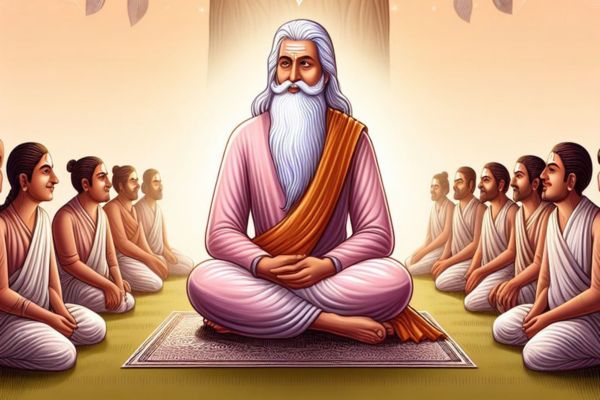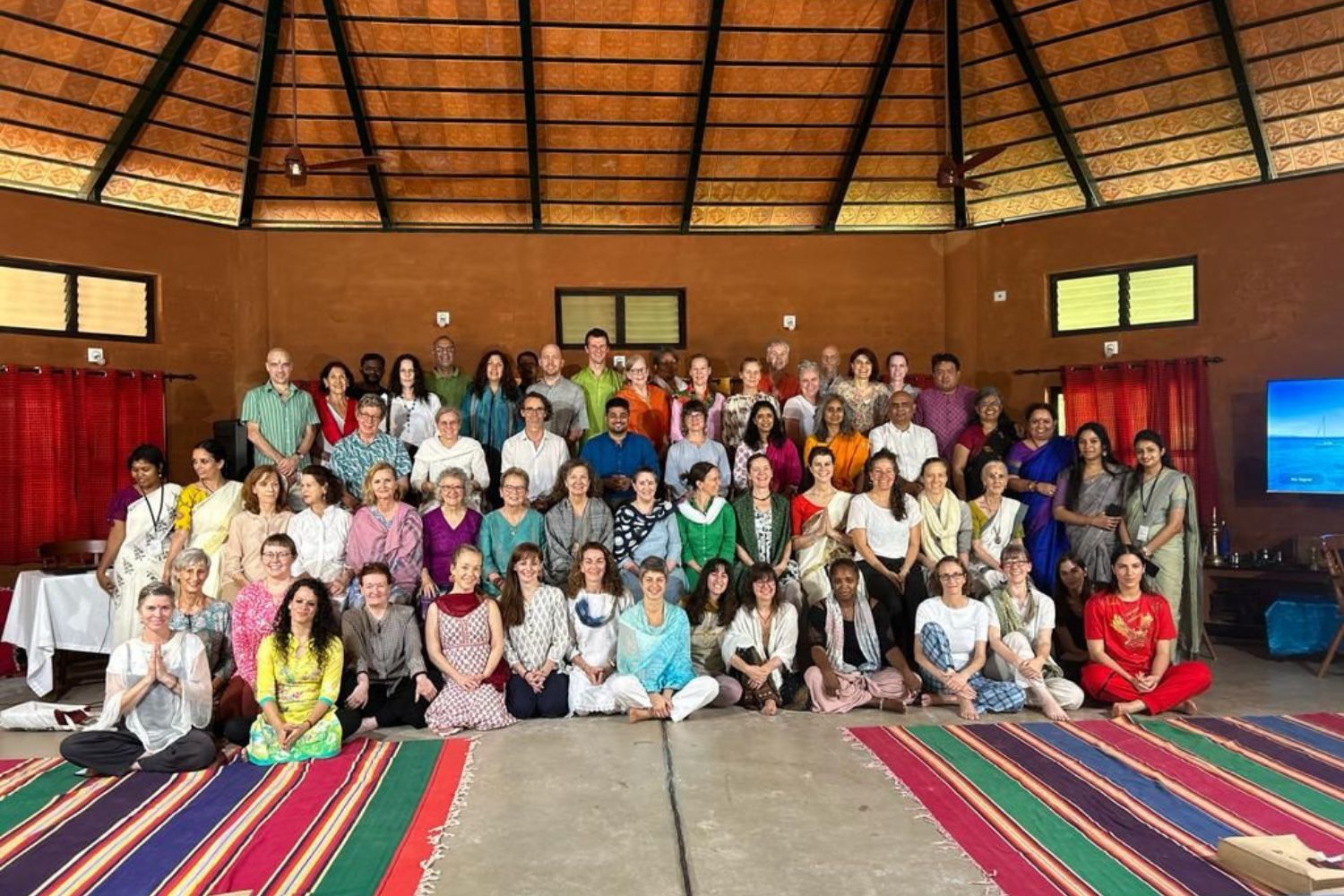Exploring the Role of Paramparā and Dṛṣṭi in Modern Education
We had a wonderful conversation with Dr. Anuradha Choudry in Vedic Threads wherein she shared that, in today’s rapidly evolving educational landscape, the ancient concepts of paramparā (tradition) and dṛṣṭi (worldview) offer profound insights that help us imagine what has gone before, what is happening now, and how we might use this information to help us make good choices in how we participate in education. These principles, deeply rooted in the Indian wisdom traditions, provide a holistic approach to knowledge that is both timeless and adaptable.
The term paramparā refers to the lineage of knowledge passed down through generations. This tradition emphasizes the continuity of wisdom, ensuring that valuable teachings are preserved and adapted over time. In ancient India, education was not just about acquiring information but about understanding the interconnectedness of all life forms. This holistic approach is encapsulated in the concept of dṛṣṭi, which means seeing or perceiving the world in a comprehensive and integrated manner.
One of the critical aspects of traditional Indian education was its emphasis on intuition alongside empirical knowledge. Ancient scholars believed that true understanding came from a combination of observation, introspection, and logical reasoning. This approach contrasts with the more fragmented and specialized education systems we see today, where subjects are often isolated from their broader context.

The influence of colonial education reforms, particularly those introduced by Thomas Macaulay in the 19th century, led to a significant shift in the Indian educational paradigm. Macaulay’s policies aimed to create a class of people who were Indian in blood and color but English in tastes, opinions, and intellect. This shift introduced an anthropocentric worldview, focusing primarily on human interests and often disregarding the broader ecological and spiritual dimensions of knowledge.
Despite these changes, there is a growing recognition of the value of integrating traditional wisdom with modern education. Ayurveda, for instance, is a prime example of a traditional knowledge system that emphasizes holistic well-being, considering the health of humans, plants, and animals. The term hitāhāra in Ayurveda, which refers to the right or beneficial food, encompasses a broader ethical dimension where the food must not harm any living being throughout its production and consumption.
Understanding and applying these principles can lead to a more balanced and harmonious approach to education. By embracing the holistic perspectives of paramparā and dṛṣṭi, we can foster a learning environment that not only imparts knowledge but also nurtures the well-being of all life forms and the planet.
As we move forward, it is essential to strike a balance between preserving valuable traditions and embracing innovation. This balanced approach can help us address the challenges of the modern world while staying rooted in timeless wisdom. Integrating paramparā and dṛṣṭi into contemporary education systems can pave the way for a more inclusive, ethical, and sustainable future.
In our upcoming Vedic Threads sessions, we will continue to explore these concepts and discuss practical ways to integrate them into our lives. Join us on this journey of rediscovering and revitalizing the rich tapestry of Indian wisdom traditions.
By being in, or being with people immersed in a holistic paramparā, we can guide our dṛṣṭi, ever more towards a broader, more compassionate alignment with the Greater Good and can co-create a more holistic and interconnected approach to education, ensuring that we honor the past while innovating for the future.

